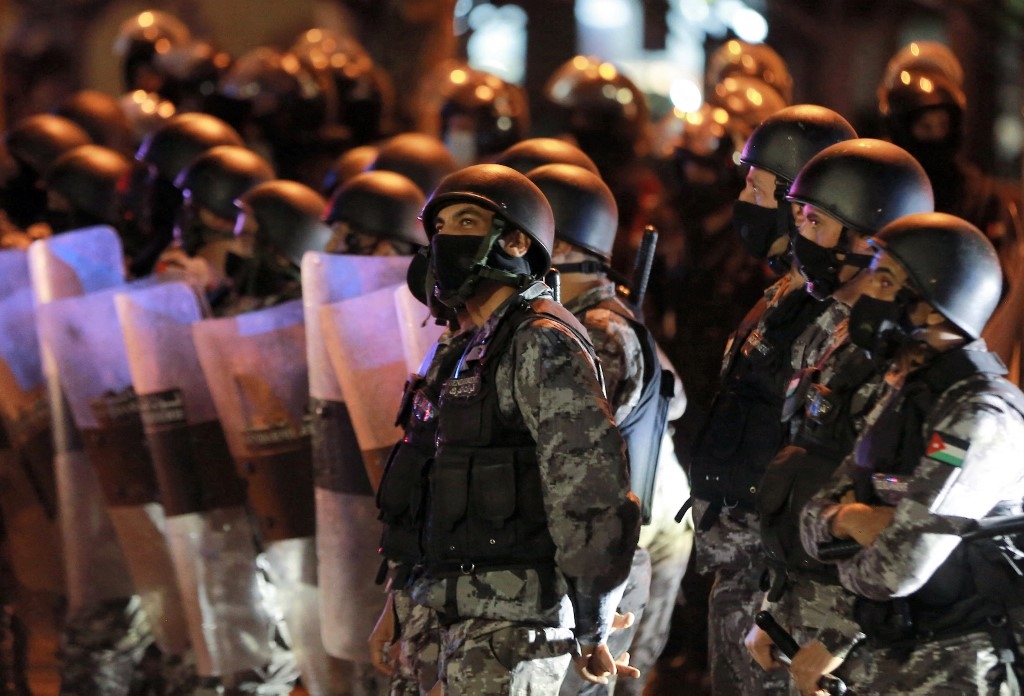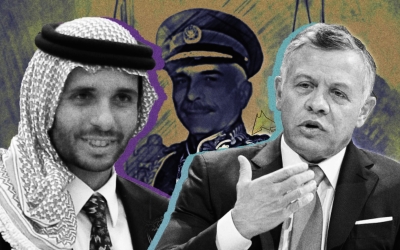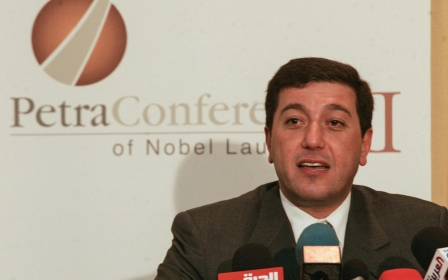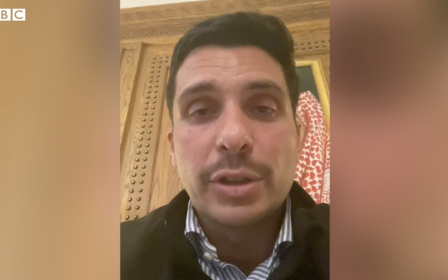Jordan's Prince Hamzah drama has come at a critical moment

The current crisis in Jordan is unprecedented, with disagreements among the royal family escalating into accusations of conspiracy and arrests. This coincides with widespread public protests against the kingdom’s ruling elite and a security crackdown that has targeted dozens of activists.
While the Jordanian royal family has experienced tumult in the past, it has always survived. Shortly before the death of the widely popular King Hussein in 1999, Prince Hassan, who had been Jordan’s crown prince for more than three decades, was removed and replaced by Abdullah II, who has ruled ever since.
With protests swelling again over the Covid-19 crisis and accompanying economic disaster, the voices calling for change are growing ever louder
A similar scenario unfolded in 2004, when King Abdullah stripped his half-brother, Hamzah, of the title of crown prince and instead gave it to his own son, Hussein. In both cases, the changes went ahead without a public battle.
The latest crisis is different, and it may prove to be the most dangerous in the history of the Jordanian monarchy, with Prince Hamzah now under house arrest.
In a leaked recording, Jordan’s army chief instructs the prince to refrain from “mingling and visiting” people and to avoid social media. Prince Hamzah frequently meets with tribal figures on an unofficial basis, which has reportedly angered the king and led to arrests among the prince’s entourage.
New MEE newsletter: Jerusalem Dispatch
Sign up to get the latest insights and analysis on Israel-Palestine, alongside Turkey Unpacked and other MEE newsletters
At the same time, Jordan has been gripped by protests over the country’s handling of the Covid-19 pandemic, fuelled last month by the deaths of seven patients amid an oxygen shortage at a government hospital in al-Salt.
Although the king rushed to the hospital, dismissed the health minister and ordered a judicial investigation, public anger has not diminished, with protesters calling for comprehensive political and economic reforms.
Some demonstrators have called on Prince Hamzah to play a role in saving the country, which is in the throes of a severe economic crisis. Many Jordanians feel that the government has failed to manage and contain both the Covid-19 pandemic and the economy, dramatically affecting their quality of life.
Economic devastation
There has been a recent surge in coronavirus cases in Jordan, with the country recording on a daily basis thousands of new infections and dozens of deaths. The pandemic and accompanying restrictions have only compounded the dire economic situation facing Jordanians.
The economic picture in Jordan is bleak, with a quarter of the population unemployed and thousands more grappling with reduced incomes during the pandemic. The projected budget deficit this year is nearly $3bn out of a total budget of $14bn, meaning that more than 20 percent of the costs of public expenditures is missing.
Amid a slate of austerity measures that have included postponing public-sector wage hikes and removing labour protections, Jordan’s public debt has reached its highest-ever level, exceeding $45bn - equivalent to the country’s GDP.
In the meantime, Gulf aid to Jordan has decreased. A five-year aid package from Gulf Cooperation Council states to Jordan, worth around $3.6bn, ended in January 2017. The following year, popular protests in the face of widespread economic pressure led to the toppling of the government. The Gulf states subsequently stepped up with additional grant funding, but it was widely criticised for failing to meet Jordan’s dire economic needs.
Calls for change
As commodity prices skyrocket and poverty rates intensify, Jordan is witnessing increased demands for political and economic reforms. Many believe that their current misery is the result of government corruption.
With protests swelling again over the Covid-19 crisis and accompanying economic disaster, the voices calling for change are growing ever louder. Against this backdrop, the drama surrounding Prince Hamzah and talk of a potential coup could not have come at a more critical moment.
The views expressed in this article belong to the author and do not necessarily reflect the editorial policy of Middle East Eye.
Middle East Eye delivers independent and unrivalled coverage and analysis of the Middle East, North Africa and beyond. To learn more about republishing this content and the associated fees, please fill out this form. More about MEE can be found here.






